We have been busy over here lately, resulting in several exciting, new learning opportunities as we commence a season of summer learning.

First off, we just launched Organizing for Justice with Kayla Gilchrist For Individuals and For Groups.
In the Church we are typically very good at doing mercy — meeting people’s immediate needs with feeding programs, clothing programs and more. We are less effective in enacting justice — changing the systems that direct our lives to hold officials (today’s kings and nobles) accountable for fair practices and policies, the fair and equitable treatment of God’s people, so that we build a community more reflective of the kingdom of God.
In this class, Kayla Gilchrist discusses what it means to organize, why we should organize, how God calls us to organize. She describes community organizing as a Christian duty and a means to creating Beloved Community.
Second, we have updated two of our creation care courses. Our series of creation care courses might be of particular interest to those of you utilizing Forward Movement’s Creation Care Bible Challenge. You can now take new and improved editions of these two courses:
Water and Justice with Fletcher Harper For Individuals and For Groups
 Christianity, like most religious traditions, includes water as part of sacred rituals and treats it with reverence. Water is a basic requirement for life. Humans can live weeks without food, but only days without water. We connect water with healing, with power, with cleansing. It is no wonder that faith traditions incorporate it into their most fundamental sacred rituals.
Christianity, like most religious traditions, includes water as part of sacred rituals and treats it with reverence. Water is a basic requirement for life. Humans can live weeks without food, but only days without water. We connect water with healing, with power, with cleansing. It is no wonder that faith traditions incorporate it into their most fundamental sacred rituals.
The Bible tells Christians that water is a great gift from God and reveres it as a human necessity and as a holy symbol repeatedly throughout the Old and New Testaments. In this course, participants will learn about challenges to water supplies that are developing throughout the world. They will develop a deeper appreciation of Christianity’s sense of water as a gift. Most importantly, they will learn about the impetus and resources that Christianity gives us to conserve water and minimize the effects of climate change.
Other courses in our Creation Care series include Christians and Climate Change with Bill McKibben and Christian Vegetarianism with Steve Kaufman. Take all four of these courses and earn a ChurchNext Certificate in Creation Care.
Holy Grounds: The Surprising Connections Between Coffee and Faith with Tim Schenck For Individuals and For Groups
 Coffee impacts people’s day-to-day lives all over the world. It can be fancy and expensive or basic and affordable, served in big mugs or tiny cups, drunk on the go or savored slowly, but in its various forms, it tops the lists (along with tea and beer) of most-consumed beverages in the world.
Coffee impacts people’s day-to-day lives all over the world. It can be fancy and expensive or basic and affordable, served in big mugs or tiny cups, drunk on the go or savored slowly, but in its various forms, it tops the lists (along with tea and beer) of most-consumed beverages in the world.
Because we use it so much, both in our culture and in our churches, it’s only fitting that as Christians, we examine this drink in our midst. What is its role in our social lives? Are we using coffee in wholesome and meaningful ways? Do we savor it as part of God’s creation? What consideration do we give to the ways that coffee is made and processed in terms of how we relate to God’s creation and to one another?
In this class, the Rev. Tim Schenck takes us on a journey examining the origins and rituals of coffee preparation and consumption. He discusses how coffee, the early Christian response to coffee and ways in which we choose to prepare and drink coffee, can affect our spiritual lives. He also notes our responsibility as Christians to consider how our consumption of coffee affects people’s lives globally.
Finally, in these days of tension, anxiety, and anger, we thought it was time to update the course Developing Christian Patience with Jeff Bullock For Individuals and For Groups.
 Patience is a skill we teach children in order to help them get along in the world. We teach them, for example, that if they are patient and save their money instead of spending it immediately, they can eventually afford that toy they want. That kind of patience is a useful skill to learn, but it isn’t the subject of this course. Christian patience is about building relationships rather than accessing things. We don’t wait for a prize; rather, we build into a process. Secular patience goes through a story breathless to see how it will turn out. Christian patience isn’t about building up to a choice or a result, because we already know the outcome: the love of God is the beginning and the end. Instead, Christian patience is more like being part of the story — enduring, reaching out, listening, making ourselves vulnerable, never giving up on one another.
Patience is a skill we teach children in order to help them get along in the world. We teach them, for example, that if they are patient and save their money instead of spending it immediately, they can eventually afford that toy they want. That kind of patience is a useful skill to learn, but it isn’t the subject of this course. Christian patience is about building relationships rather than accessing things. We don’t wait for a prize; rather, we build into a process. Secular patience goes through a story breathless to see how it will turn out. Christian patience isn’t about building up to a choice or a result, because we already know the outcome: the love of God is the beginning and the end. Instead, Christian patience is more like being part of the story — enduring, reaching out, listening, making ourselves vulnerable, never giving up on one another.
In this course, Jeff Bullock provides a thought-provoking exploration of what true Christian patience is. The lessons help us step back and reexamine who and what is ordering our time and our sense of worth. Jeff teaches that Christian patience is a gift from God. If we can abide in it, he argues, we will know deep peace.
We hope you enjoy exploring these courses and that your summer is both fun and spiritually fulfilling.
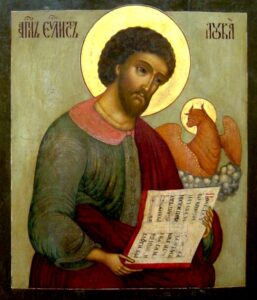 We just launched a new, updated edition of Introduction to Luke with John Lewis For Individuals and For Groups.
We just launched a new, updated edition of Introduction to Luke with John Lewis For Individuals and For Groups.
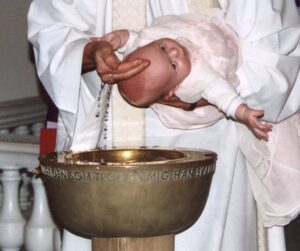
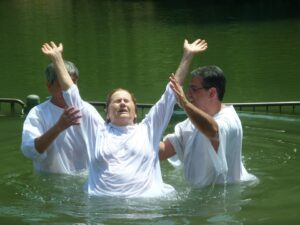

 Christianity, like most religious traditions, includes water as part of sacred rituals and treats it with reverence. Water is a basic requirement for life. Humans can live weeks without food, but only days without water. We connect water with healing, with power, with cleansing. It is no wonder that faith traditions incorporate it into their most fundamental sacred rituals.
Christianity, like most religious traditions, includes water as part of sacred rituals and treats it with reverence. Water is a basic requirement for life. Humans can live weeks without food, but only days without water. We connect water with healing, with power, with cleansing. It is no wonder that faith traditions incorporate it into their most fundamental sacred rituals. Coffee impacts people’s day-to-day lives all over the world. It can be fancy and expensive or basic and affordable, served in big mugs or tiny cups, drunk on the go or savored slowly, but in its various forms, it tops the lists (along with tea and beer) of most-consumed beverages in the world.
Coffee impacts people’s day-to-day lives all over the world. It can be fancy and expensive or basic and affordable, served in big mugs or tiny cups, drunk on the go or savored slowly, but in its various forms, it tops the lists (along with tea and beer) of most-consumed beverages in the world. Patience is a skill we teach children in order to help them get along in the world. We teach them, for example, that if they are patient and save their money instead of spending it immediately, they can eventually afford that toy they want. That kind of patience is a useful skill to learn, but it isn’t the subject of this course. Christian patience is about building relationships rather than accessing things. We don’t wait for a prize; rather, we build into a process. Secular patience goes through a story breathless to see how it will turn out. Christian patience isn’t about building up to a choice or a result, because we already know the outcome: the love of God is the beginning and the end. Instead, Christian patience is more like being part of the story — enduring, reaching out, listening, making ourselves vulnerable, never giving up on one another.
Patience is a skill we teach children in order to help them get along in the world. We teach them, for example, that if they are patient and save their money instead of spending it immediately, they can eventually afford that toy they want. That kind of patience is a useful skill to learn, but it isn’t the subject of this course. Christian patience is about building relationships rather than accessing things. We don’t wait for a prize; rather, we build into a process. Secular patience goes through a story breathless to see how it will turn out. Christian patience isn’t about building up to a choice or a result, because we already know the outcome: the love of God is the beginning and the end. Instead, Christian patience is more like being part of the story — enduring, reaching out, listening, making ourselves vulnerable, never giving up on one another.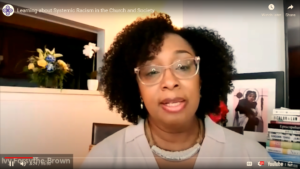
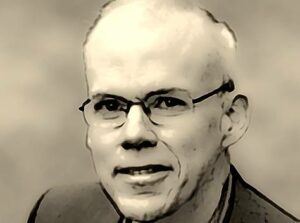 We have just launched
We have just launched  The magnitude of the problem climate change presents can seem impossible on a couple of different levels. On the one hand, while we may understand the situation intellectually, it can be hard to wrap our minds around our ability to have such effects on the earth. Humans have been around in one form or another for 6 million years, according to scientists. How can our burning fossil fuels, even a lot of them, over the last 250 years or so possibly change something as basic as earth’s temperature — let alone creating effects like raising the levels of the oceans?
The magnitude of the problem climate change presents can seem impossible on a couple of different levels. On the one hand, while we may understand the situation intellectually, it can be hard to wrap our minds around our ability to have such effects on the earth. Humans have been around in one form or another for 6 million years, according to scientists. How can our burning fossil fuels, even a lot of them, over the last 250 years or so possibly change something as basic as earth’s temperature — let alone creating effects like raising the levels of the oceans? The situation can also feel impossible the other way. If the entire earth is heating, what does it matter what one person does? What can we do in the face of damage that huge and forces as large as national governments and international corporations making the world-altering decisions about it?
The situation can also feel impossible the other way. If the entire earth is heating, what does it matter what one person does? What can we do in the face of damage that huge and forces as large as national governments and international corporations making the world-altering decisions about it?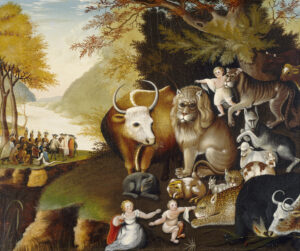
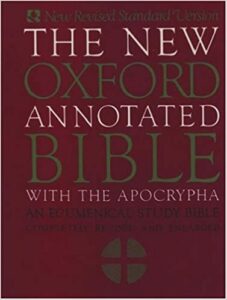 We just launched
We just launched 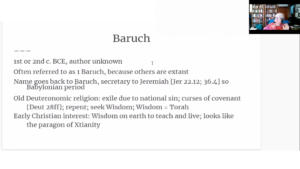 We just launched
We just launched 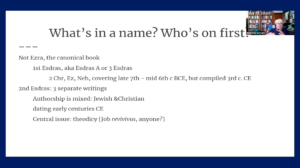 We just launched
We just launched 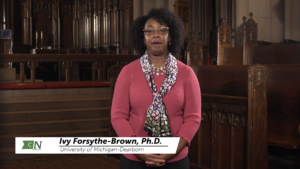 We recently launched a free 6-session curriculum,
We recently launched a free 6-session curriculum, 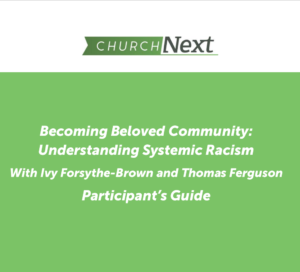 resources for further study. The Participant’s Guide includes short summaries of each video’s main points, the discussion questions for each session, and resources for further study.
resources for further study. The Participant’s Guide includes short summaries of each video’s main points, the discussion questions for each session, and resources for further study.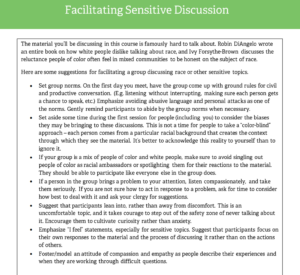 After the video is finished, the facilitator may stop sharing their screen and encourage discussion. (You may want to set some group norms to begin the conversation; the Facilitator’s Guide has suggestions about this on page 4.) If the group is large, the facilitator may prefer to utilize breakout rooms, which break people into small groups for conversation. (Here is a guide on how to use
After the video is finished, the facilitator may stop sharing their screen and encourage discussion. (You may want to set some group norms to begin the conversation; the Facilitator’s Guide has suggestions about this on page 4.) If the group is large, the facilitator may prefer to utilize breakout rooms, which break people into small groups for conversation. (Here is a guide on how to use